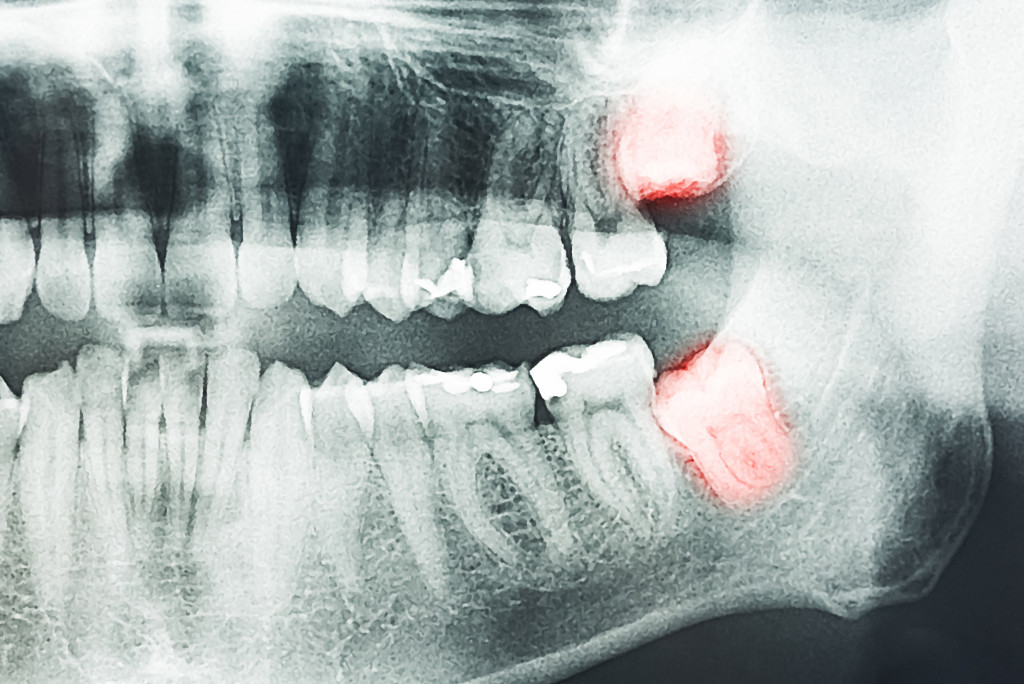Disclaimer: This website provides health information for educational purposes only and is not a substitute for professional medical advice, diagnosis, or treatment. Always seek the guidance of a qualified healthcare provider with any questions you may have.
- Get an examination from a dentist as soon as possible to diagnose the issue with the wisdom tooth.
- Know the available treatment options, including extraction, root canal treatment, surgery, orthodontic care, and cosmetic dentistry options.
- Respond to pain and inflammation immediately and take preventative measures such as brushing and flossing regularly.
- Consider long-term care for the wisdom tooth, such as regular follow-up visits.
If you’re experiencing pain in your mouth or gums, it may be a sign of an impacted wisdom tooth. This common problem can cause swelling, soreness, and even infection. Fortunately, there are ways to address the issue and keep your mouth healthy. Here are five tips for dealing with a wisdom tooth:
1. Get an Examination
The first step in dealing with a wisdom tooth is to get it checked out by your dentist as soon as possible. It’s important to note that the longer you wait, the more difficult it can make treating and manage your wisdom tooth issue. Your dentist will be able to assess the situation and diagnose what is causing the problem and how best to address it.
During the examination, your dentist will check to see enough room in your mouth for the wisdom tooth to come in properly. If not, they can recommend removing it before it causes more damage or pain. Your dentist may also take x-rays to examine the wisdom tooth better and determine the best treatment.
2. Know What Treatment Options are Available
Once your dentist has diagnosed the issue with your wisdom tooth, you should be prepared to discuss available treatment options. Treatment could include a simple extraction or something more complex such as a root canal, depending on the problem.
Here are the treatment options that your dentist might offer:
Extraction
If you and your dentist decide that the best course of action is to extract the wisdom tooth, a few options are available. Depending on the complexity of the extraction, it can range from an outpatient procedure done in the dentist’s office to requiring a visit with an oral surgeon at a hospital or surgical center.
Root Canal Treatment

A root canal treatment may be recommended if the wisdom tooth is decayed or infected. This involves your dentist removing the inner pulp of the affected tooth and cleaning out any bacteria from the interior before restoring it with a filling or crown. This procedure can help preserve your tooth in cases where the damage is too advanced for extraction.
Surgery
If your wisdom tooth is impacted or partially stuck beneath the gum line, surgery may be necessary to remove it. During this procedure, your dentist will make an incision in the gum tissue to expose and remove the tooth. Afterward, they will suture the gums shut for proper healing.
Orthodontic Care
Your dentist may recommend orthodontic care if your wisdom teeth are misaligned or crowded. This could mean wearing braces or aligners to straighten the teeth and create more room in the jaw for the wisdom teeth to emerge properly. In other cases, dentists may recommend removing some of your other teeth to make room for the wisdom tooth. While this is not a common solution, it may sometimes be necessary.
Cosmetic Dentistry
Cosmetic dentistry can also help correct any damage caused by wisdom teeth. For instance, if one or more wisdom teeth have been extracted, a durable and natural-looking teeth replacement such as dental implants may be a practical solution. Dental implants look like real teeth designed to last many years with proper care. This is ideal if you’re looking for a more seamless and permanent solution.
3. Respond to Pain and Inflammation Right Away

If you are experiencing pain or inflammation due to your wisdom tooth, don’t wait. Seek treatment immediately to help reduce the discomfort. Your dentist can recommend an over-the-counter pain medication such as ibuprofen or acetaminophen to help manage the discomfort. They may also recommend a topical cream or gel to reduce inflammation and provide relief. Home remedies can also be used to help manage the pain.
4. Take Preventative Measures
Maintaining good oral hygiene when dealing with a wisdom tooth is important, especially if you are considering an extraction or other treatment option that could leave your tooth more vulnerable to decay. Ensure you brush and floss twice daily, use an antiseptic mouthwash, and avoid sugary or acidic foods.
5. Consider Long-Term Care
Finally, it’s important to consider the long-term care of your wisdom tooth. After any treatment, your dentist will likely recommend regular follow-up visits to ensure everything is healing properly. Ensure you understand how often these visits should be scheduled and adhere to the schedule as closely as possible.
In Closing
Dealing with a wisdom tooth can be tricky, but proper management and care don’t have to be a major issue. By following these five tips, you can ensure that your wisdom tooth is taken care of and that any issues are addressed quickly and effectively. So don’t delay—get an examination from your dentist as soon as possible.




